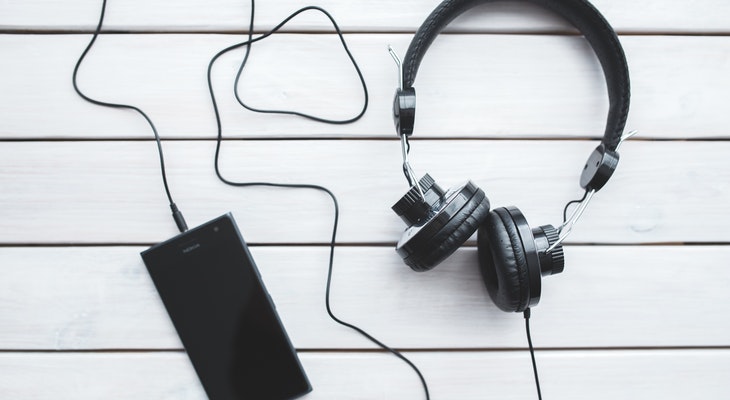Need to Study? Here Are 7 Scientific Ways to Stay Awake Without Coffee
Do you need to study, but find yourself struggling to stay awake in the afternoon? Check out these scientifically-proven tips on staying awake without coffee.
Updated 17 May 2019

Being a student isn’t easy.
Whether you’re still in school or you’ve started college, chances are, you’ll be juggling many things on your plate. This includes co-curricular activities, assignments, tuition classes and studying, which can leave you feeling like a zombie at times.
So, if you feel like you need a “boost” to keep you on top of your game, don’t worry. There’s no need to chug down energy drinks and copious amounts of coffee, or even resort to synthetic drugs to get you get through the day.
Here are 7 scientific ways to stay awake (some of which are rather quirky!), without jeopardising your health.
#1. Take the stairs

The next time you find yourself nodding off to sleep while studying, consider taking a short break to walk up and down the stairs!
Research from the University of Georgia suggests that just 10 minutes of walking up and down their stairs at a regular pace may make you feel more energised than you would with caffeine.
So, give it a try! It’s free, doesn’t stain your teeth (*cough* coffee) and can be done just about anywhere.
#2. Watch viral cat videos

Hogwash? No. Unorthodox? Yes! (Not that we’re complaining.)
According to the American Chemical Society (ACS), watching viral cat videos when you’re feeling tired can help improve your mood and temporarily boost your attention to detail.
But how? And why?
It boils down to its effects on 2 hormones in your body — oxytocin, which is known as a happy hormone (and sometimes love hormone) in your brain, and cortisol, a hormone linked to stress. According to the ACS, watching cute cat videos can “increase oxytocin levels in your brain and reduce cortisol levels”.
So, bring on those cat videos to boost your happy hormones and help you to stay awake. Just remember not to get carried away while you’re on YouTube.
#3. Gulp down some H20

Never underestimate the power of drinking enough water.
Science has shown that we start feeling fatigued and unmotivated when we're dehydrated, so it's important to say "bottoms up" to that bottle of water for our body to operate at an optimal level.
While you’re at it, you can also consider eating hydrating foods such as watermelon and cucumber to help compensate for any lost fluids.

#4. Take a catnap

If you often find yourself battling fatigue in the afternoons, consider taking a power nap.
According to this report, ‘’a mere 10-minute nap resulted in immediately increased alertness and a boost in cognitive performance that could last as long as 155 minutes (over three hours)“.
However, the optimal time to nap is between noon and 2pm, or you may risk disrupting your sleep at night.
Additionally, another research suggests that “napping can increase positive mood”, which can improve your ability to solve problems and increase learning.
DID YOU KNOW
According to researchers, getting less than 7 to 8 hours of sleep daily impairs alertness. So make sure you catch those Zs!
Apply for university with EduAdvisor
Secure scholarships and more when you apply to any of our 100+ partner universities.
Start now#5. Bask in some sunshine

Did you know that Malaysia’s year-round sunny weather could be the key to helping you stay awake when you’re feeling sleepy?
Research published in the Journal of Environmental Psychology suggests that exposure to bright lights can make you feel "less sleepy, more vital and happier".
So, if you’ve been cooped up indoors from studying all day long, step outside, bask in some sunshine and get your dose vitamin D.
Remember to slather on some sunscreen though.
#6. Get some exercise

You might have seen this coming, but research has shown that exercise can help you stay energised and alert.
This is because exercise releases endorphins, those feel-good hormones that can leave you feeling happier and more energised. Physical activity can also put you in a healthier state of mind, with research suggesting that just 1 hour of exercise per week "was associated with reduced incidence of future depression".
So whether it’s dancing, swimming, playing ultimate frisbee or brisk walking, carve out some time in your schedule to squeeze in a workout or two. Trust us, your body will thank you.

#7. Listen to your favourite songs

Have an upcoming exam that you need to study for? Don’t worry. Music can be a good companion to help you stay motivated and awake.
According to the American Chemical Society (ACS), listening to your favourite music “activates the pleasure circuit in your brain to release feel-good neurochemicals such as dopamine, serotonin and oxytocin”, which can help keep you awake.
Additionally, research from the Stanford University School of Medicine suggests that listening to music may help you pay attention.
All the more reason for you to put those headphones on!
While you can’t replace a good night’s rest with these tips, they will come in handy when a mid-afternoon slump strikes you. So give these tips a try the next time you find yourself struggling to stay awake. All the best!






